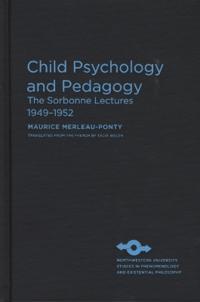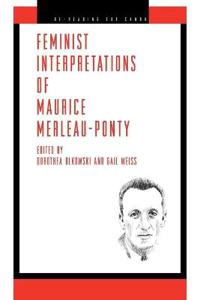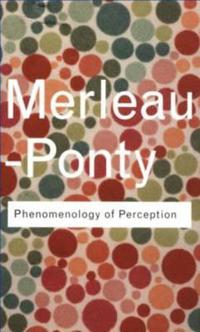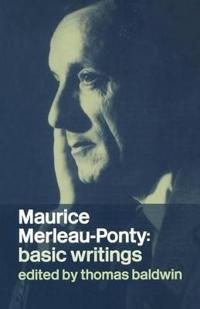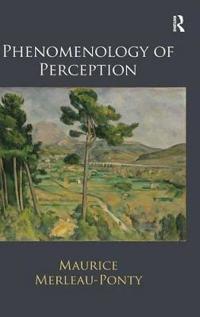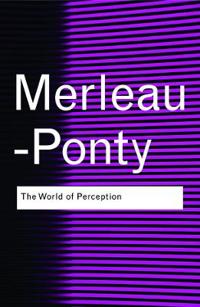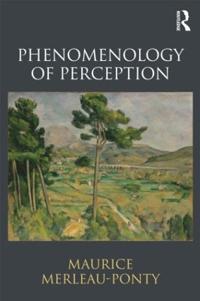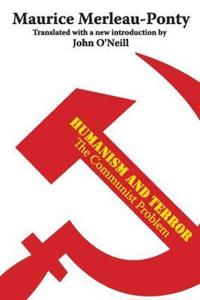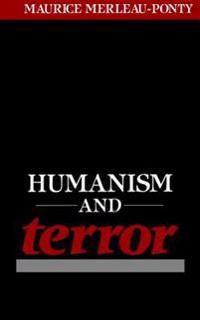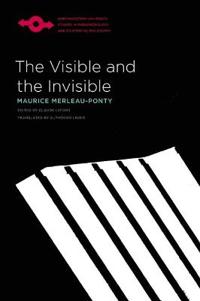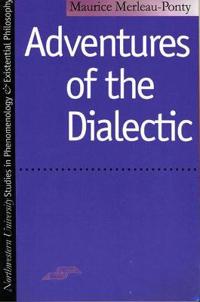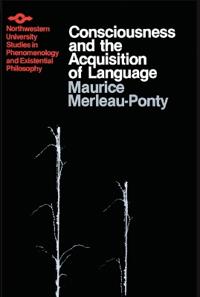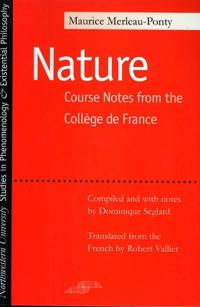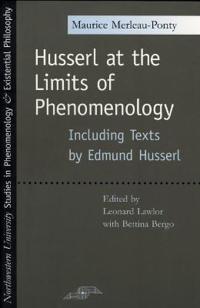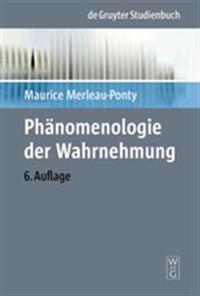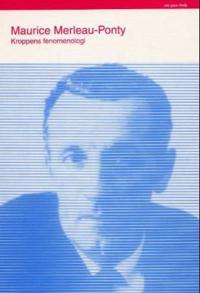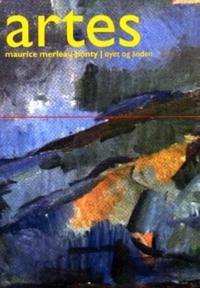Child Psychology and Pedagogy (Inbunden)
avMaurice Merleau-Ponty, Talia (TRN) Welsh, Maurice Merleau-Ponty
ISBN: 9780810126145 - UTGIVEN: 2010-06Maurice Merleau-Ponty is one of the few major phenomenologists to engage extensively with empirical research in the sciences, and the only one to examine child psychology with rigor and in such depth. His writings have recently become increasingly influential, as the findings of psychology and cogni[...]
Maurice Merleau-Ponty (övrigt)
ISBN: 9780203502532 - UTGIVEN: 2003-12This is the first volume to bring together a comprehensive selection of Merleau-Ponty's writing. It presents a cross-section of his work that clearly shows the historical progression of his ideas and influence.[...]
Feminist Interpretations of Maurice Merleau-Ponty (Häftad)
ISBN: 9780271029184 - UTGIVEN: 200701More than sixty years ago, Simone de Beauvoir identified the importance of Maurice Merleau-Ponty's writings to feminist theory. His exploration of the relationship between the body and the space it inhabits is key to modern phenomenological thinking. But there has been little agreement on how Merlea[...]
Phenomenology of Perception (Häftad)
avMaurice Merleau-Ponty
ISBN: 9780415278416 - UTGIVEN: 200203Challenging and rewarding in equal measure, Phenomenology of Perception is Merleau-Ponty's most famous work. Impressive in both scope and imagination, it uses the example of perception to return the body to the forefront of philosophy for the first time since Plato. Drawing on case studies such as b[...]
Maurice Merleau-Ponty (Häftad)
avThomas Baldwin
ISBN: 9780415315876 - UTGIVEN: 200312Merleau-Ponty was a pivotal figure in twentieth-century French philosophy. He was responsible for bringing the phenomenological methods of the German philosophers - Husserl and Heidegger - to France and instigated a new wave of interest in this approach. His influence extended well beyond the bound[...]
Phenomenology of Perception (Inbunden)
avMaurice Merleau-Ponty
ISBN: 9780415558693 - UTGIVEN: 201111First published in 1945, Maurice Merleau-Ponty's monumental Phenomenologie de la perception signalled the arrival of a major new philosophical and intellectual voice in post-war Europe. Breaking with the prevailing picture of existentialism and phenomenology at the time, it has become one of the lan[...]
The World of Perception (Storpocket)
avMaurice Merleau-Ponty
ISBN: 9780415773812 - UTGIVEN: 200802'In simple prose Merleau-Ponty touches on his principle themes. He speaks about the body and the world, the coexistence of space and things, the unfortunate optimism of science - and also the insidious stickiness of honey, and the mystery of anger.' - James Elkins Maurice Merleau-Ponty was one of th[...]
Phenomenology of Perception (Häftad)
avMaurice Merleau-Ponty
ISBN: 9780415834339 - UTGIVEN: 201308First published in 1945, Maurice Merleau-Ponty's monumental Phenomenologie de la perception signalled the arrival of a major new philosophical and intellectual voice in post-war Europe. Breaking with the prevailing picture of existentialism and phenomenology at the time, it has become one of the lan[...]
Humanism and Terror (Häftad)
avMaurice Merleau-Ponty
ISBN: 9780765804846 - UTGIVEN: 2000-09Raymond Aron called Merleau-Ponty "the most influential French philosopher of his generation." First published in France in 1947, Humanism and Terror was in part a response to Arthur Koestler's Darkness at Noon, and in a larger sense a contribution to the political and moral debates of a postwar wor[...]
Humanism and Terror: An Essay on the Communist Problem (Häftad)
avMaurice Merleau-Ponty
ISBN: 9780807002773 - UTGIVEN: 196912The Visible and the Invisible (Häftad)
avMaurice Merleau-Ponty
ISBN: 9780810104570 - UTGIVEN: 196912Consciousness and the Acquisition of Language (Pocket)
avMaurice Merleau-Ponty
ISBN: 9780810105973 - UTGIVEN: 1979-06The tools, concepts, and vocabulary of phenomenology are used in this book to explore language in a multitude of contexts.[...]
Nature: Course Notes from the College de France (Häftad)
avMaurice Merleau-Ponty, Dominique Seglard
ISBN: 9780810114463 - UTGIVEN: 200311Husserl at the Limits of Phenomenology (Häftad)
avMaurice Merleau-Ponty
ISBN: 9780810117471 - UTGIVEN: 200207A glimpse into Maurice Merleau-Ponty's nuanced reading of Husserl and his effort to track the genesis of truth through the idealization of language. It combines Merleau-Ponty's notes on Husserl's "Origin of Geometry", his "Course Summary", related texts, and essays by the co-translators.[...]
Child Psychology and Pedagogy (Häftad)
avMaurice Merleau-Ponty
ISBN: 9780810126169 - UTGIVEN: 201008Maurice Merleau-Ponty is one of the few major phenomenologists to engage extensively with empirical research in the sciences, and the only one to examine child psychology with rigor and in such depth. His writings have recently become increasingly influential, as the findings of psychology and cogni[...]
Phenomenologie de la perception de Maurice Merleau-Ponty
ISBN: 9782341001496 - UTGIVEN: 2015-11Bienvenue dans la collection Les Fiches de lecture d'UniversalisBrutalement interrompue par la mort, l'A uvre de Maurice Merleau-Ponty (1908-1961) reste dominee par une philosophie de la conscience, inspiree de la phenomenologie de Husserl, et dont la Phenomenologie de la perception (1945) constitue[...]
Phanomenologie Der Wahrnehmung (Inbunden)
avMaurice Merleau-Ponty
ISBN: 9783110068849 - UTGIVEN: 1976-08Maurice Merleau-Ponty zur Einführung (Häftad)
avChristian Bermes
ISBN: 9783885063995 - UTGIVEN: 2012-12Maurice Merleau-Ponty (1908-1961) ist eine Schlüsselfigur der französischen Philosophie im 20. Jahrhundert. Seine produktive Verbindung von Phänomenologie und Existenzialismus hat immer wieder die Grenzen von Wissenschaft und Philosophie ins Wanken gebracht und nicht nur seine Fachkollegen faszin[...]
Kroppens fenomenologi (Pocket)
avMaurice Merleau-Ponty
ISBN: 9788253016856 - UTGIVEN: 1994Gjennom en rekke fenomenologiske analyser av patologiske forstyrrelser etc. nærmer Merleau-Ponty seg en ny innsikt i subjektets kroppslige væren og den legemligjorte bevissthet og erkjennelse. Boken utgjør den første delen av hans verk "Phenomenologie de la perception" (1945). Har litteraturlist[...]
Øyet og ånden (Pocket)
avMaurice Merleau-Ponty
ISBN: 9788253021621 - UTGIVEN: 2000Malerkunstens problemer anskueliggjør kroppens gåte, og kroppens gåte anskueliggjør malerkunstens problemer.Det er ved å låne verden sin kropp at maleren forvandler verden til maleri. Maleren er ubestridelig suveren i sin fortolkning av verden som han utfører uten noen annen "teknikk" enn den[...]
Lovtal till filosofin : essäer i urval (Häftad)
avMaurice Merleau-Ponty
ISBN: 9789171396396 - UTGIVEN: 200405Kroppens fenomenologi (Häftad)
avMaurice Merleau-Ponty
ISBN: 9789171731005 - UTGIVEN: 200001Maurice Merleau-Ponty är 37 år gammal när han 1945 lägger fram sin avhandling Phénoménologie de la perception. Genom Sartre, som var en studiekamrat från tiden vid Ecole normale supérieure och som hade vistats i Tyskland 1934, kom Merleau-Ponty i kontakt med Husserls skrifter. Andra tänkare[...]

